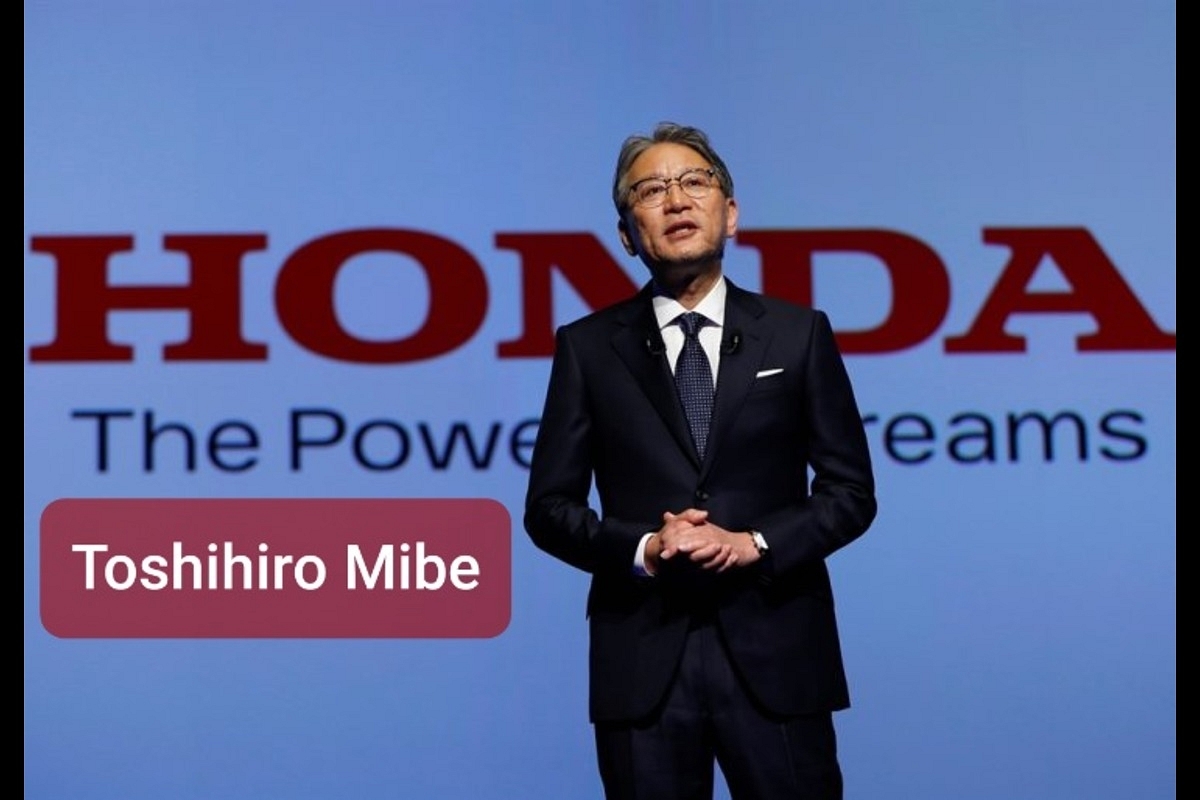News Brief
Honda Unveils Strategy For Complete Pivot To EV By 2040, To Partner With TSMC For Chips And CATL For Batteries

Honda President Toshihiro Mibe
Japanese automobile behemoth Honda Motor on Wednesday (April 26) announced that it had reached an strategic understanding with the world's leading contract chipmaker Taiwan Semiconductor Manufacturing Co (TSMC), to ensure a "stable" supply of chips as part of its strategy for the electric vehicle(EV) market.
Honda President Toshihiro Mibe briefed the reporters on the progress the company has achieved toward its business transformation and electrification.
Mibe has admitted Honda is currently a laggard in the global race for electric vehicles. The executive pledged the company's global reboot will accelerate from 2025.
As part of Honda's plan to offer all its models around the world as EVs or equipped with fuel cells, which run on hydrogen and are emissions-free, by 2040, it aims to make more than 2 million EVs a year by 2030.
Honda said that it will introduce four new EV models by 2026 in Japan, its third-largest market after the U.S. and China. It will introduce seven more EV models in China by 2027.
To ensure steady progress in electrification, Honda will enter into various strategic partnerships in areas ranging from procurement to resource circulation of batteries and battery resources, and enter in to collaboration with semiconductor manufacturers.
Automotive Chips
During 2021 and 2022, Honda was forced into some significant production cutbacks due to a shortage of semiconductor chips, essential devices in the manufacturing process of electronics. During the pandemic, people stayed mainly indoors and worked from home, which led to a surge in demand for chips used in smartphones and computers. As chipmakers focused on meeting that demand, semiconductor supplies to auto parts manufacturers suffered.
Due to a shortage of chips, Honda was forced to cut back on manufacturing at one of its Japan plants by 40% and reduce activity by 30% at another assembly plant.
"Stable procurement of semiconductors is becoming increasingly important as the electrification and digitization of mobility products continue," Mibe informed reporters.
TSMC's chips will be deployed in Honda's products from around 2025, the company said. The move is part of the Japanese automaker's medium- and long-term strategy to strengthen ties with an ecosystem of semiconductor producers.
Automakers now need highly sophisticated chips with higher computing power — especially as the industry transitions to electric and autonomous vehicles — which are fundamentally different to those used in PCs and smartphones.
Battery procurement and development
Honda also plans to secure minerals for EV batteries by leveraging its strategic partnership with Hanwa Co., a Japanese trading company, to ensure stable procurement of nickel, cobalt and lithium.
In North America, Honda will use batteries from General Motors and a joint venture with South Korea's LG Energy Solution. Honda will make electric models in the U.S. at its three plants in Ohio, including the Marysville plant.
The company will also collaborate with leading Chinese battery maker Contemporary Amperex Technology Co., Limited (CATL).
Honda also announced that it is investing jointly in semi-solid-state batteries (lithium-metal secondary batteries) co-development effort with SES AI Corporation (SES), an EV battery research and development company.
"Honda will begin operation of a demonstration line for the production of all-solid-state batteries in 2024, aiming to adopt its all-solid-state batteries to models to be introduced to market in the second half of the 2020s." the company said.
On the software side, Honda said that it will work on advancing its E&E architecture and developing an original vehicle OS with the aim of adopting them starting from the mid-to large-size EVs to be launched in North America in 2025.
"Based on this vehicle OS, Honda will continue advancing its in-vehicle software to enable the continuous advancement of vehicle functions and services for customers even after the vehicle is purchased," the company said
Introducing ElectionsHQ + 50 Ground Reports Project
The 2024 elections might seem easy to guess, but there are some important questions that shouldn't be missed.
Do freebies still sway voters? Do people prioritise infrastructure when voting? How will Punjab vote?
The answers to these questions provide great insights into where we, as a country, are headed in the years to come.
Swarajya is starting a project with an aim to do 50 solid ground stories and a smart commentary service on WhatsApp, a one-of-a-kind. We'd love your support during this election season.
Click below to contribute.
Latest